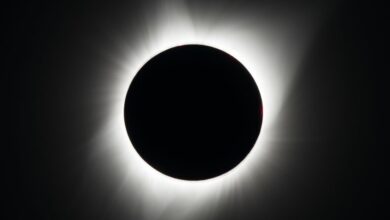
The massive earthquake and tsunami that hit Fukushima, Japan, last year wreaked havoc in the skies above as well, disturbing electrons in the upper atmosphere, NASA reported.
The waves of energy from the quake and tsunami that were so destructive on the ground reached into the ionosphere, a part of the upper atmosphere that stretches from about 50 to 500 miles above Earth's surface.
The ionosphere is the last, thinnest part of the atmosphere, where solar ultraviolet radiation breaks up molecules and leaves a haze of electrons and ions.
In images released on Friday, NASA showed how the earthly disturbances from the 11 March 2011 quake and tsunami were echoed in the movement of electrons far aloft. This movement was monitored by tracking the GPS signals between satellites and ground receivers.
Scientists have seen this phenomenon before, for tsunamis in Samoa in 2009 and Chile in 2010. The Japanese event, however, occurred in a region more closely monitored by a dense network of GPS receivers, NASA said in a statement.




